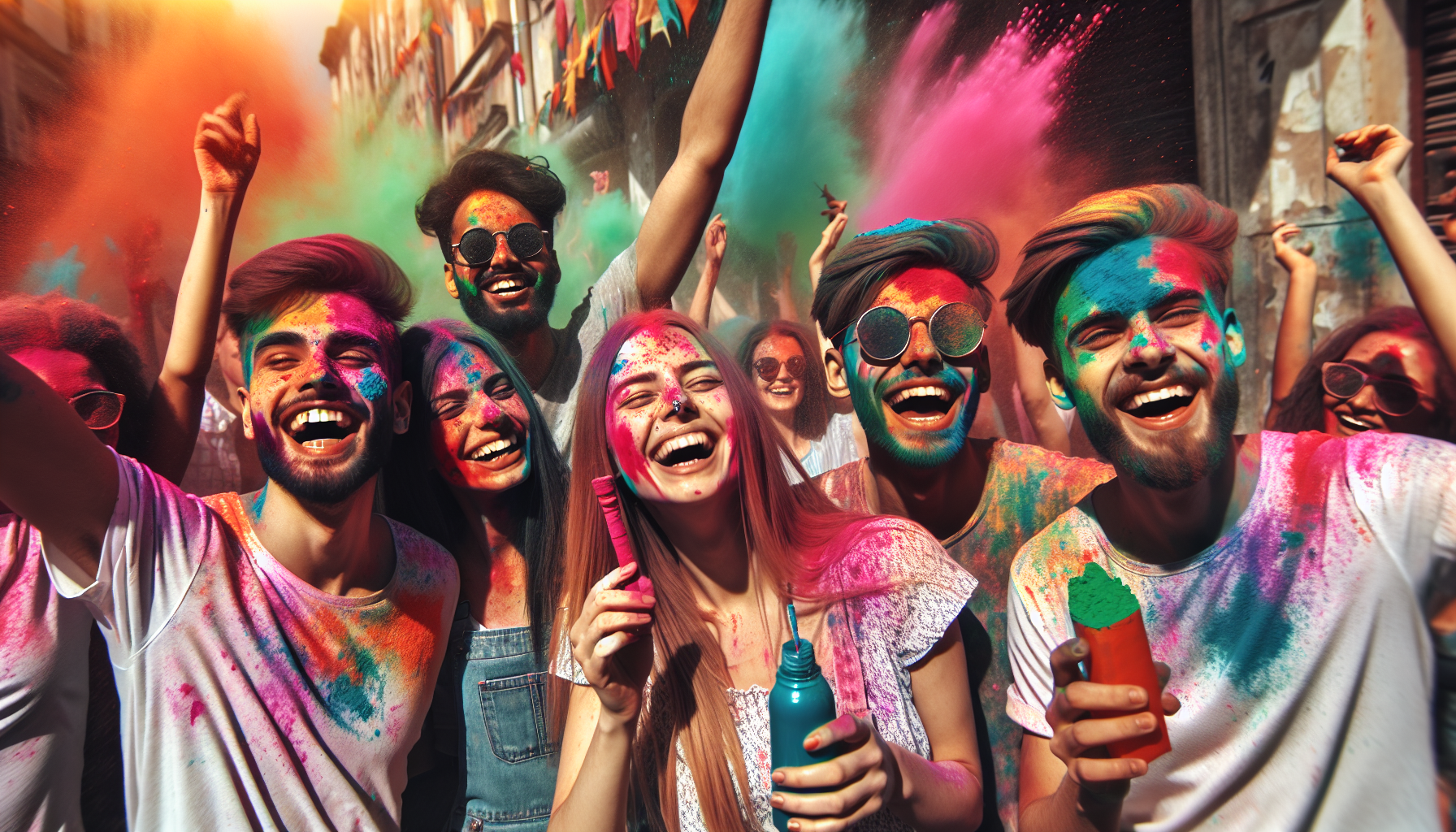India, a land of diverse cultures and rich traditions, is known for its vibrant and colorful festivals. These celebrations, which occur throughout the year, are a reflection of the country's multi-ethnic society and offer a glimpse into its myriad customs and rituals. This ultimate guide provides insights into some of the most popular festivals celebrated across India, each showcasing its own unique blend of spirituality, history, and joyous festivity.
Diwali: The Festival of Lights
Diwali, symbolizing the victory of light over darkness and good over evil, is perhaps the most celebrated festival in India. Spanning five days, it involves the lighting of oil lamps and candles, exchanging gifts and sweets, and bursting fireworks. Families clean and decorate their homes, and prayers are offered to Lakshmi, the goddess of wealth and prosperity. It’s a time of joy, renewal, and community bonding.
Holi: The Festival of Colors
The festival of Holi heralds the arrival of spring and is one of the most exuberant festivals in India. Known for the joyful throwing of colored powders and water, Holi breaks barriers and brings people together in a spirit of playful camaraderie. It celebrates the legend of Prahlad and Hiranyakashipu and signifies the triumph of good over evil. Communities gather to dance, sing, and relish traditional foods and sweets.
Navratri and Durga Puja
Navratri, meaning 'nine nights', is dedicated to the worship of the Goddess Durga and is celebrated in various forms across India. In Gujarat, it is marked by Garba and Dandiya-Raas dances. In West Bengal, Durga Puja is celebrated with grandeur, with elaborate idols of Goddess Durga being worshiped over five days, culminating in their immersion in water bodies.
Eid al-Fitr: The Breaking of the Fast
Celebrated by Muslims worldwide, Eid al-Fitr marks the end of Ramadan, the holy month of fasting. In India, it is a day of feasting and giving thanks to Allah. Families come together to pray, visit friends and relatives, and share traditional delicacies like biryani and sweet dishes such as 'sewaiyaan’. Charity, in the form of 'Zakat al-Fitr', is given to the needy, emphasizing the importance of community and compassion.
Pongal: The Harvest Thanksgiving Festival
A major festival in Tamil Nadu, Pongal is a four-day event celebrating the harvest. It marks the beginning of Uttarayan, the sun's six-month journey northward. Traditional foods are prepared, with 'Pongal' – a sweet dish of rice boiled with milk and jaggery – being the highlight. Cattle are adorned and honored in the 'Mattu Pongal' ceremony, underlining the agrarian roots of this festive occasion.
Ganesh Chaturthi
Ganesh Chaturthi is dedicated to Lord Ganesha, the elephant-headed god of wisdom and prosperity. Celebrated primarily in Maharashtra, it involves the installation of clay idols of Ganesha in homes and public pandals (temporary structures). Communities come together to sing, dance, and worship over ten days, culminating in the immersion of the idols in rivers or the sea amidst chants of "Ganapati Bappa Morya."
Raksha Bandhan: The Bond of Protection
Raksha Bandhan is a celebration of the bond between brothers and sisters. Sisters tie a protective thread, or 'rakhi', around their brothers' wrists, symbolizing love and the promise of protection. The brothers, in turn, give gifts and pledge to support their sisters. It is a day that strengthens familial bonds and underscores the value of sibling relationships.
Conclusion
Indian festivals embody the spirit of togetherness, harmony, and cultural richness that define this diverse nation. They offer a unique opportunity to experience India's kaleidoscope of traditions, rituals, and community spirit. Whether it’s the splendor of Diwali, the vibrancy of Holi, or the devotion of Navratri, each festival invites everyone to partake in its joy and to appreciate the rich tapestry of India's cultural heritage.
